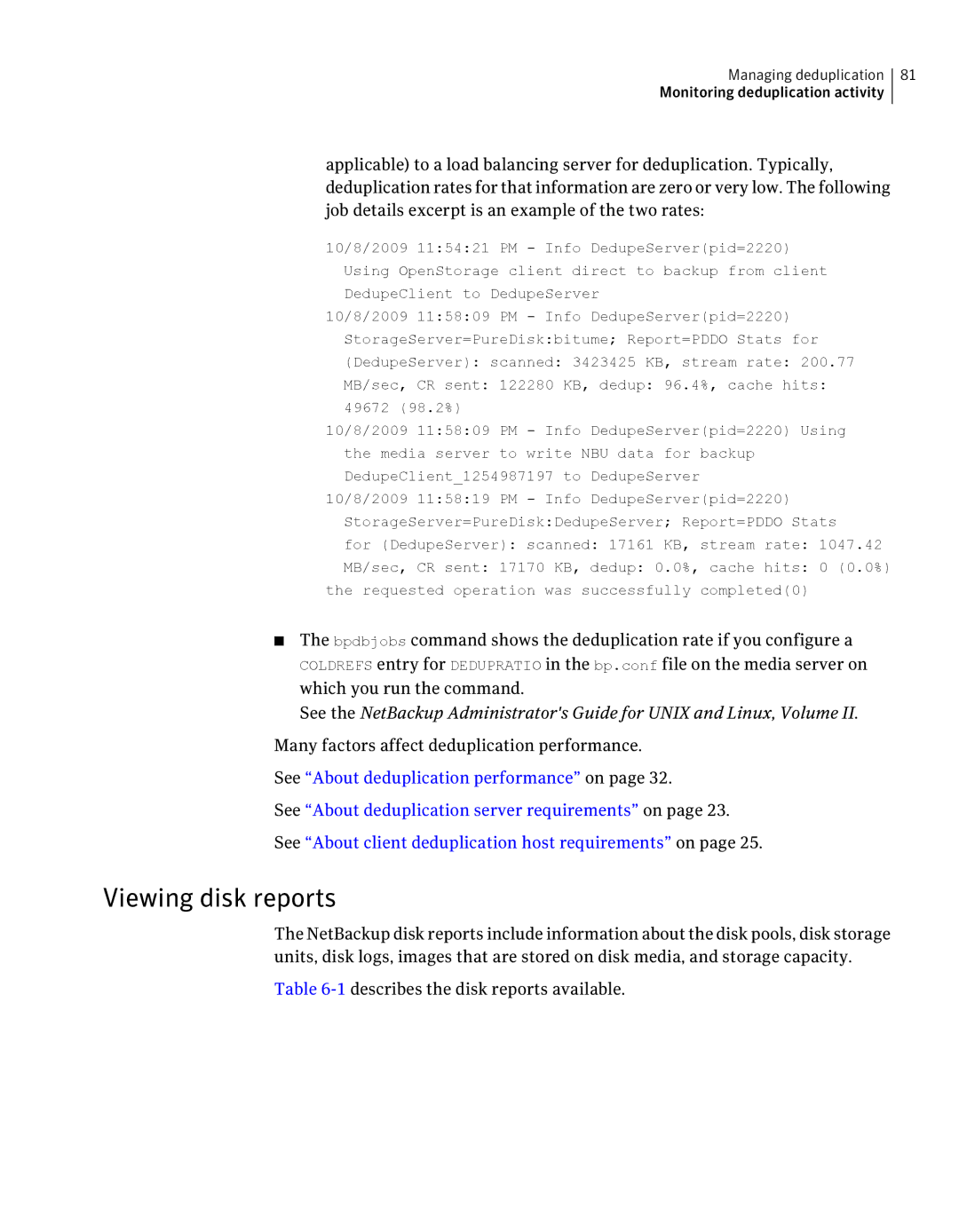Managing deduplication 81
Monitoring deduplication activity
applicable) to a load balancing server for deduplication. Typically, deduplication rates for that information are zero or very low. The following job details excerpt is an example of the two rates:
10/8/2009 11:54:21 PM - Info DedupeServer(pid=2220) Using OpenStorage client direct to backup from client DedupeClient to DedupeServer
10/8/2009 11:58:09 PM - Info DedupeServer(pid=2220) StorageServer=PureDisk:bitume; Report=PDDO Stats for (DedupeServer): scanned: 3423425 KB, stream rate: 200.77 MB/sec, CR sent: 122280 KB, dedup: 96.4%, cache hits:
49672 (98.2%)
10/8/2009 11:58:09 PM - Info DedupeServer(pid=2220) Using the media server to write NBU data for backup DedupeClient_1254987197 to DedupeServer
10/8/2009 11:58:19 PM - Info DedupeServer(pid=2220)
StorageServer=PureDisk:DedupeServer; Report=PDDO Stats
for (DedupeServer): scanned: 17161 KB, stream rate: 1047.42
MB/sec, CR sent: 17170 KB, dedup: 0.0%, cache hits: 0 (0.0%) the requested operation was successfully completed(0)
■The bpdbjobs command shows the deduplication rate if you configure a COLDREFS entry for DEDUPRATIO in the bp.conf file on the media server on which you run the command.
See the NetBackup Administrator's Guide for UNIX and Linux, Volume II.
Many factors affect deduplication performance.
See “About deduplication performance” on page 32.
See “About deduplication server requirements” on page 23.
See “About client deduplication host requirements” on page 25.
Viewing disk reports
The NetBackup disk reports include information about the disk pools, disk storage units, disk logs, images that are stored on disk media, and storage capacity.
